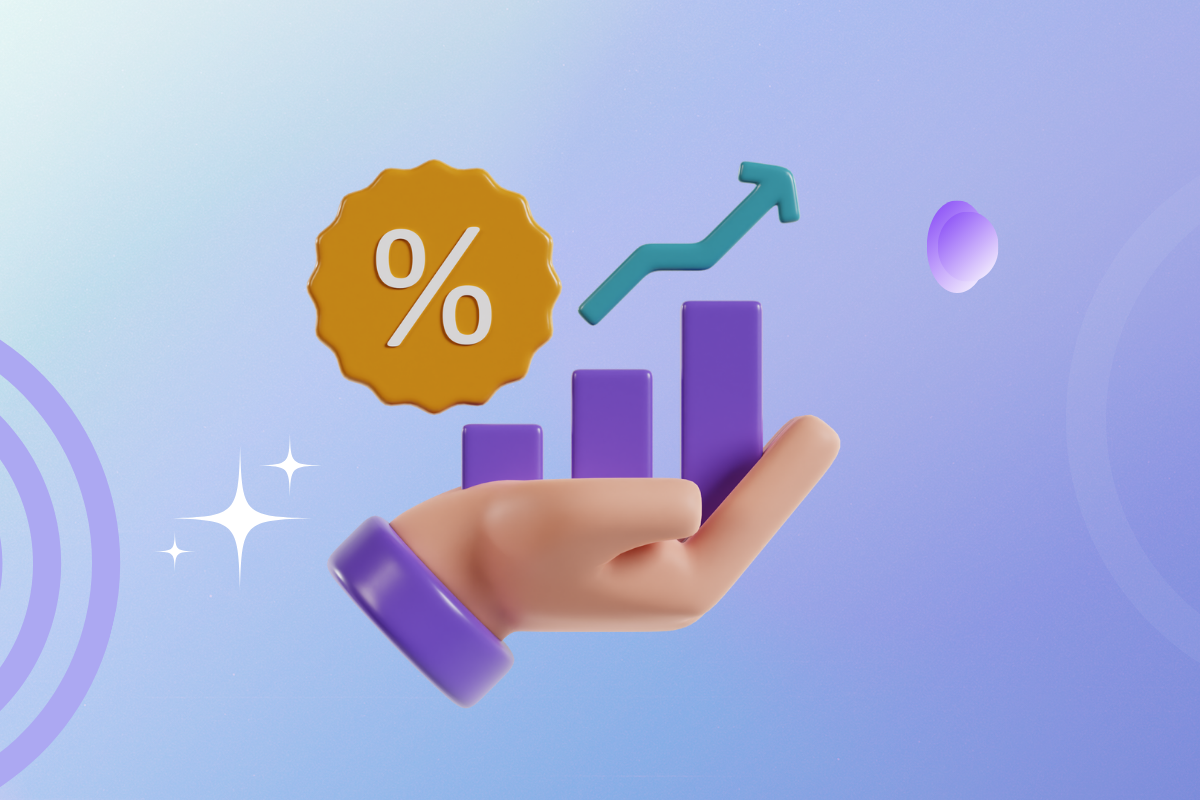The new reality of Swedish B2B sales
Sweden’s B2B sales playbook is being rewritten.
Buyers increasingly expect on-demand digital experiences and instant, secure transactions.
Across the Nordics, a large majority of B2B companies already use digital channels like self-service portals, and analysts forecast that about 80% of B2B interactions will run through digital channels by 2025.
Sweden also leads in AI adoption, about a quarter of enterprises were using AI as of 2024, second highest in the EU.
The outcome: faster, more personalized buying journeys and shorter sales cycles.
Trend 1: Digital-first buyers and hybrid sales
Imagine a Swedish buyer approving a million SEK contract on a train ride home, no boardroom, no paperwork, just a few secure taps on their phone.
This is no longer a futuristic scenario; it’s how deals are increasingly done.
Most Nordic B2B companies already rely on digital portals and self-service, and buyers now prefer to manage the bulk of their interactions online.
By 2025, analysts expect roughly four out of five B2B transactions to take place in digital channels.
Even very large purchases are going remote, one in five B2B buyers worldwide is willing to commit between $500,000 and $5 million entirely online or through remote sales conversations.
Sweden’s trusted BankID reinforces this digital comfort, enabling secure, legally binding e-signatures even for high-value deals.
Sales teams are responding with hybrid selling, blending remote touchpoints with selective in-person meetings to cover more accounts and move faster.
Local companies are already proving the model.
Areco, for example, implemented Litium Commerce Cloud to unify its B2B commerce and improve customer experience across the Nordics.
Trend 2: AI and predictive sales intelligence
Artificial intelligence is becoming the sales team’s quiet superpower.
In Sweden, about 25% of enterprises used AI in 2024, double the EU average and second highest in the union.
Across Europe, AI adoption jumped from 8% to 13.5% in just a year, and Nordic B2B firms report strong intentions to expand AI for marketing and analytics.
The practical impact is big: AI now powers lead scoring, demand forecasting, and personalized content generation inside modern sales stacks.
As one industry insider put it in 2025, “AI is not replacing Swedish salespeople. It’s their new co-pilot, removing repetitive work and surfacing insights they couldn’t see before.”
Trend 3: CRM as the revenue engine
CRM systems in Sweden are no longer just contact databases, they’re the heartbeat of revenue.
Adoption is already well above the EU average, with large enterprises close to universal use.
Connected CRMs integrate marketing, service, and ERP data, creating a 360° customer view and automating key workflows.
Socionomera, one of Sweden’s fastest-growing companies, scaled with Pipedrive and automation to slash admin work and free up managers.
Looking ahead to 2030, CRM platforms will function as full revenue engines, combining AI insights, contract management, configure-price-quote (CPQ) tools, and e-signatures in one operating layer.
Trend 4: Contract lifecycle management and e-signatures
If deals are increasingly digital, contracts can’t lag behind.
Contract lifecycle management (CLM) platforms like Skrivly, Precisely and Oneflow automate drafting, negotiation, approvals, and renewals, cutting legal bottlenecks and cycle time..
Sweden’s own constitution was amended to allow e-signing of cabinet decrees, an unmistakable sign of digital trust and legal recognition.
Qualified Electronic Signatures (QES), backed by eIDAS for cross EU recognition, further raise the bar for secure contracting.
With Gartner projecting that 80% of B2B sales interactions will be digital by 2025, streamlining the contracting step is no longer optional.
Practical steps to prepare your sales team
The shift is here. To stay ahead:
- Audit your digital readiness: Map every buyer touchpoint and remove friction from discovery to signature.
- Modernize your CRM: Integrate e-signature, CLM, and AI to centralize work and reduce manual handoffs.
- Automate the routine: Let technology handle follow-ups, approvals, and renewals so reps can focus on relationships.
- Upskill your team: Train on digital selling and analytics to embed data-driven decisions in daily operations.
- Build sustainability into pitches: ESG expectations will only tighten toward 2030.
Skrivly: powering the digital sales room for Swedish businesses
In Sweden’s high-trust, high-speed market, buyers increasingly expect one place for the entire deal.
Skrivly’s digital sales room brings every step together without context switching:
- Live chat with customers to maintain momentum and answer questions instantly.
- Create and send proposals directly in the room to avoid version chaos.
- Request legally binding signatures with BankID for instant trust and compliance across Sweden.
- Connect seamlessly to your CRM so customer data flows automatically and no one re-enters details.
The result: a faster, smoother buying journey with complete audit trails and fewer handoffs, perfectly aligned with how Swedish buyers already want to work.
Key takeaways
- Digital-first is the default in the Nordics, with widespread B2B use of online channels
- AI is mainstreaming in Sweden, which has one of Europe’s highest enterprise adoption rates
- CRM and CLM are non-negotiable for speed and risk control in the revenue engine.
- E-signature is the norm, backed by BankID and eIDAS recognition, including QES
If you want to shorten cycles and meet Swedish buyers where they already are, now is the time to unify chat, proposals, contracts, and signatures in a single workspace, and Skrivly’s digital sales room makes that possible.

